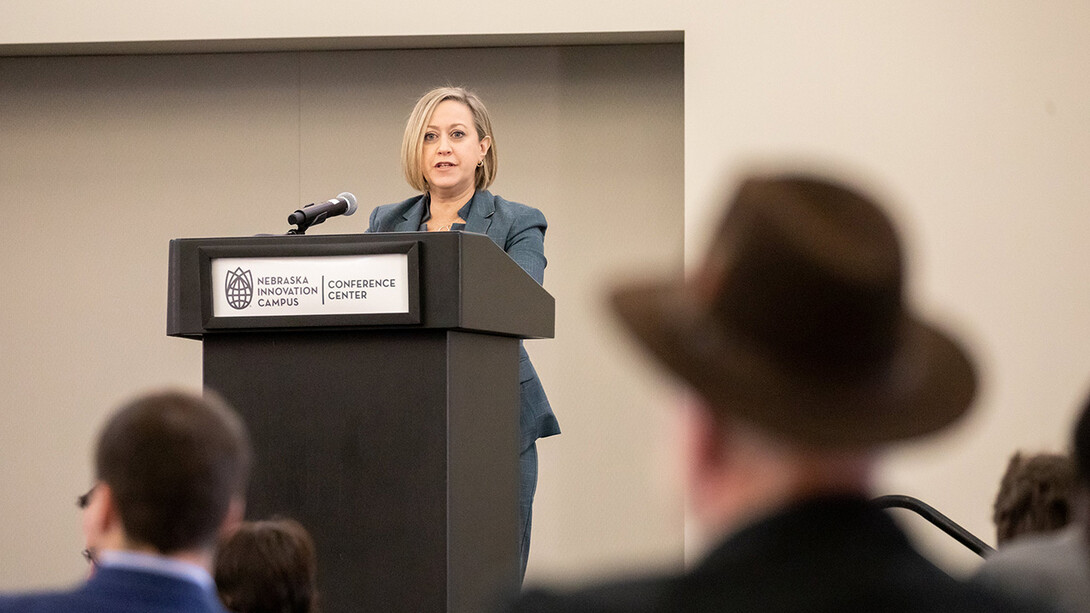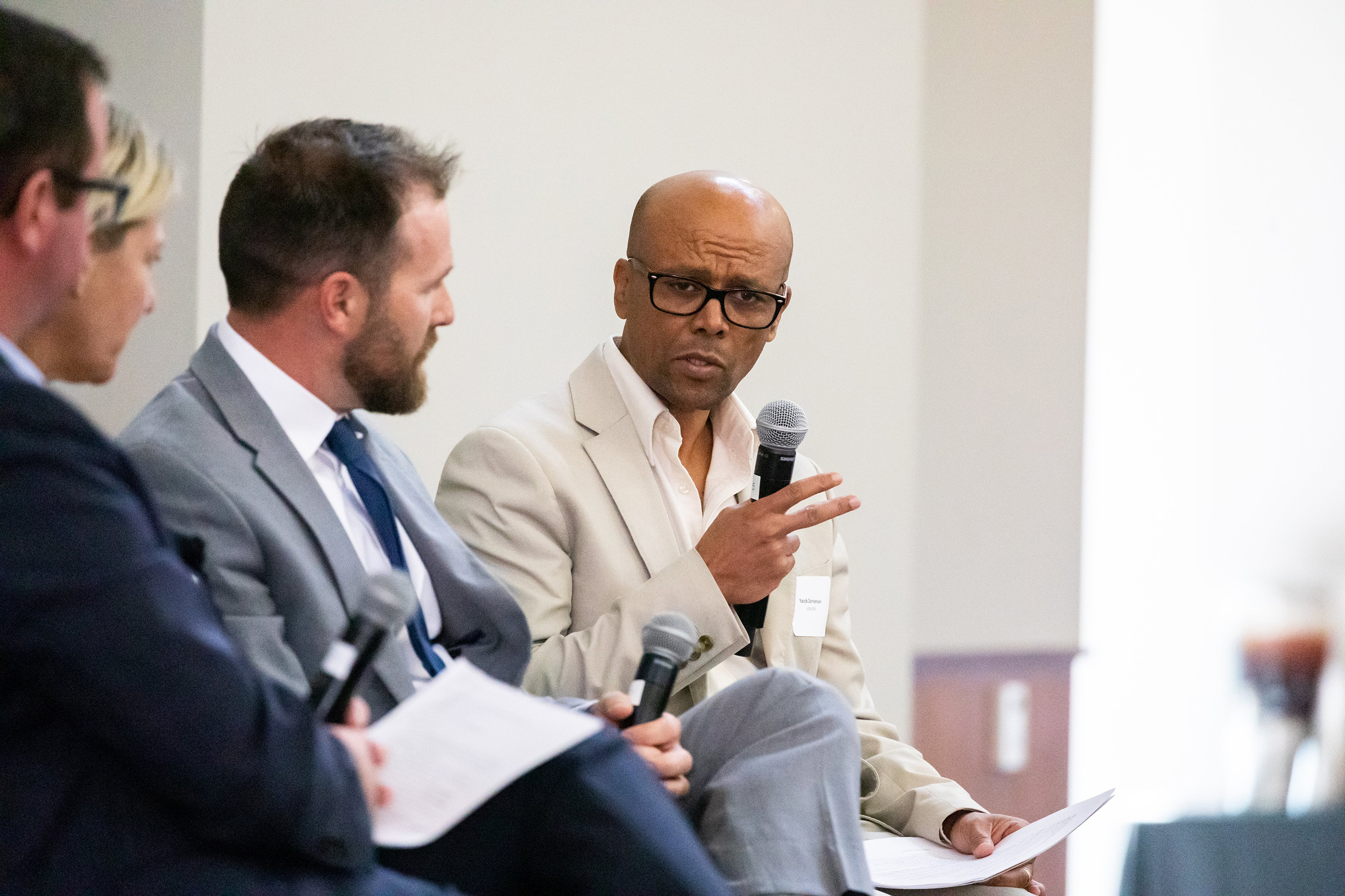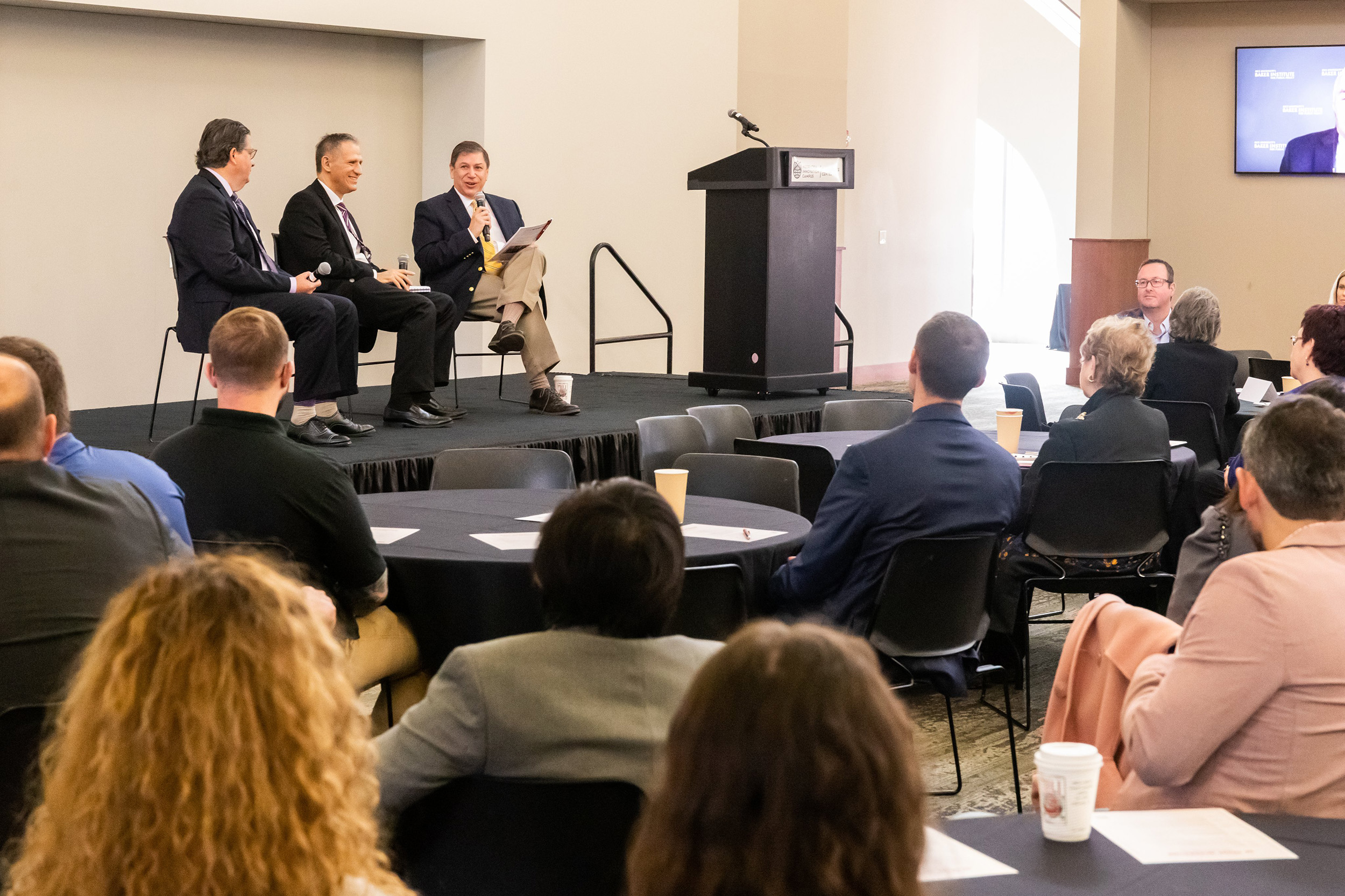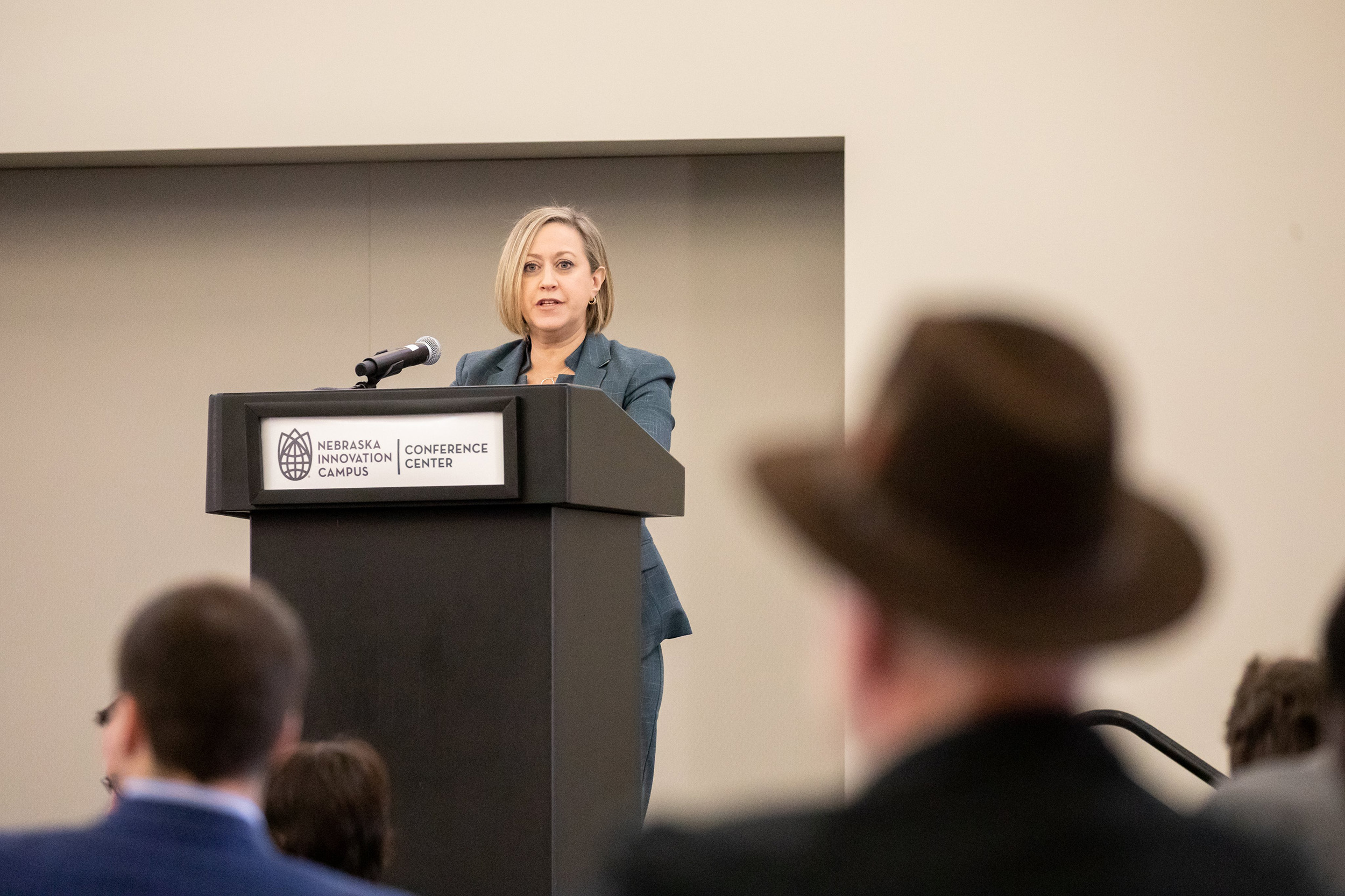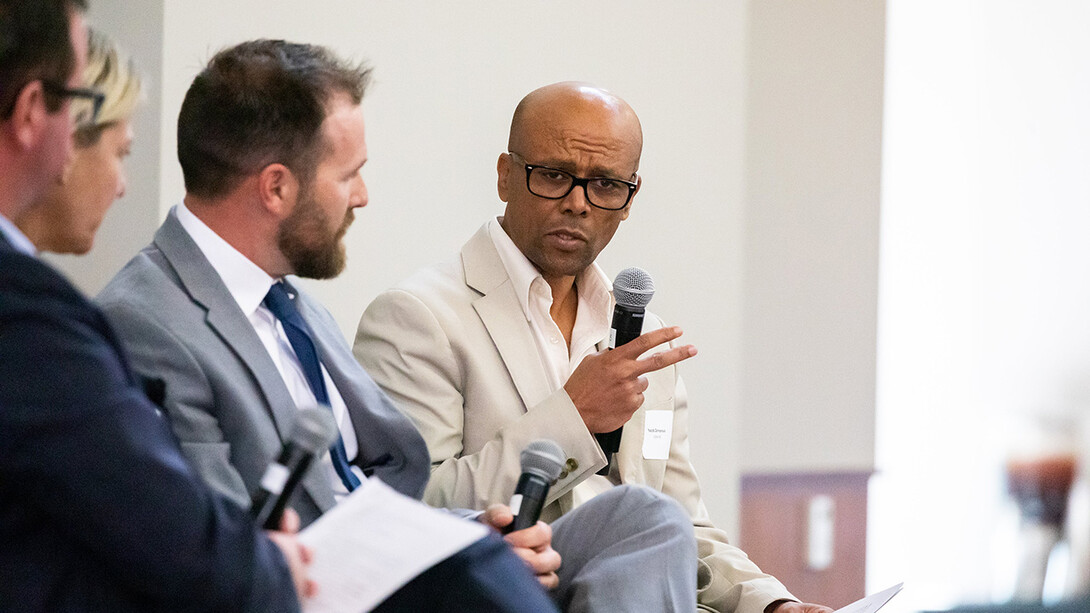
A Nov. 2 Yeutter Institute symposium gave an opportunity for Nebraskan stakeholders to hear expert analysis from trade specialists examining a range of key topics, including the state’s connections to the global marketplace.
The event, held at Nebraska Innovation Campus, featured the theme “New Patterns of Trade Integration.” Presenters and panelists discussed trade effects from the Ukraine conflict and ramifications for North American economies from the revamped NAFTA known as the United States Mexico Canada Agreement (USMCA). Other topics included Asia-Pacific economic dynamics and the future of the World Trade Organization.
The panel on North American trade issues highlighted a major challenge that Nebraska’s ag sector may soon face in Mexico: In an effort to boost domestic corn production in Mexico, the government of Andrés Manuel López Obrador recently reaffirmed its intention to ban genetically modified corn and the herbicide glyphosate, with full implementation by 2024.
The current Mexican government “is taking an ideological position against genetically modified organisms,” said Kenneth Smith Ramos, a panelist who was Mexico’s chief negotiator in crafting USMCA. “So, anything coming from agricultural biotechnology — GMOs in corn, cotton seed, soybeans — is being challenged by areas of the Mexican government.”
Mexico has consistently been the No. 1 importer of Nebraska corn. In 2020, Mexico’s purchases of Nebraska corn totaled $348 million. The vast majority of corn produced in Nebraska and elsewhere in the U.S. contains genetic modifications for factors such as hardiness and increased yield. Mexico is the No. 2 foreign purchaser of Nebraska soybeans ($197 million in 2020).
Overall, Ramos and other panelists said, USMCA has proved a sound follow-up to NAFTA. USMCA achieved needed agreement on issues such as labor standards, digital technologies and environmental issues and established a dispute resolution process that has demonstrated its effectiveness. North American trade relations face various strains, the panel said. In addition to Mexico’s hostility to GMO corn, the U.S. interpretation of USMCA provisions concerning automotive rules of origin has provoked sharp complaint from Mexico and Canada.
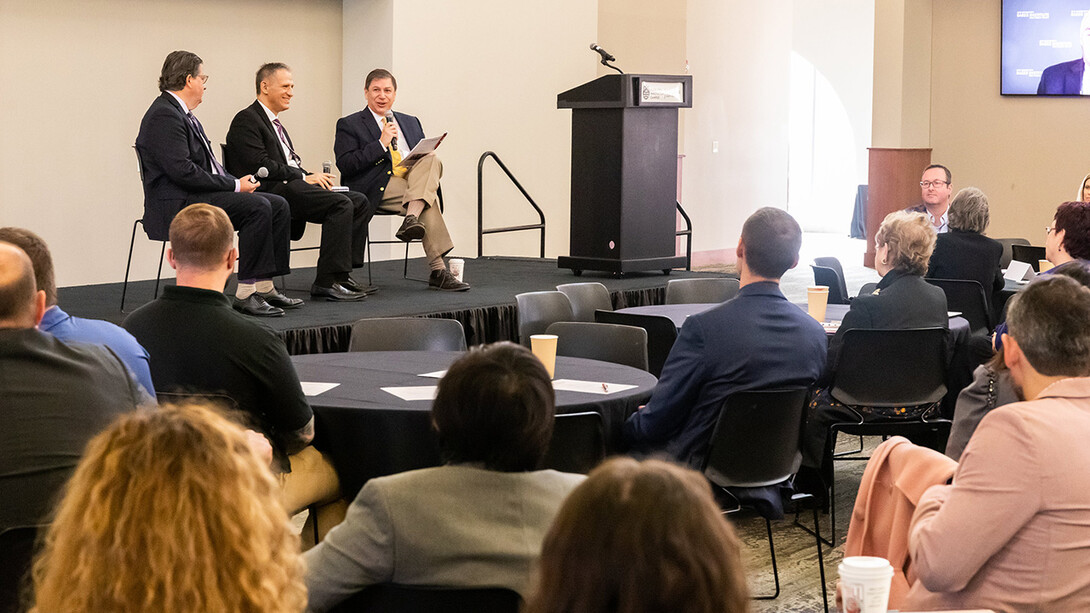
The Yeutter Institute is named for Clayton Yeutter, a Eustis, Nebraska, native who served as president and CEO of the Chicago Mercantile Exchange, U.S. trade representative and U.S. secretary of agriculture. Yeutter earned his bachelor’s, law and doctoral degrees from Nebraska and in the 1960s helped the university expand its global outreach.
As U.S. trade representative, Yeutter led negotiations for the U.S.-Canada Free Trade Agreement, signed in 1988, that became the basis for NAFTA. He headed the effort to launch the Uruguay Round of negotiations that led to the creation of the World Trade Organization (WTO), establishing the modern international trading system. That step enabled major market openings for U.S. agricultural exports.
Much of the Nov. 2 symposium focused on the stresses now weighing on the global trading system. One symptom of those pressures is the emerging idea among some policymakers that countries may seek to shift the bulk of their trade toward friendly countries, Edward Alden, Ross Distinguished Professor at Western Washington University and senior fellow at the Council on Foreign Relations, told the audience. It’s difficult to see how such “friendshoring,” with its exclusionary focus, can be reconciled with the array of existing WTO provisions that extend benefits broadly to all members, he said.
Jill O’Donnell, the institute’s Haggart-Work Director, moderated the symposium, with support from Jacy Thoman, the assistant director. Just as Clayton Yeutter had careers in business, law and economics, the Yeutter Institute has three Husker faculty chairs in those disciplines: professors Edward Balistreri in business, John Beghin in economics and Matthew Schaefer in law. Christine McDaniel, senior research fellow with the Mercatus Center at George Mason University, spoke on one of the symposium panels and was recently named the institute’s non-resident fellow.
The Clayton Yeutter Institute of International Trade and Finance holds its symposium every other year, examining major issues in international trade and illuminating Nebraska’s links to the global marketplace.
Video recordings of all conference sessions can be viewed here.
